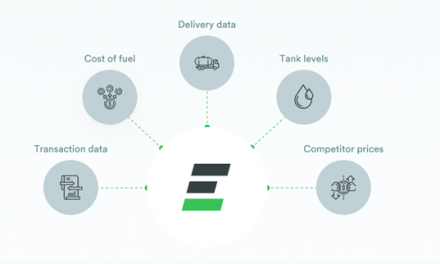By Doug Haugh
First of all “Energy Independence” is a ridiculously misunderstood and misapplied statement. For most of the energy we use in the United States we are incredibly independent. If we take energy as three streams— electricity, heat and transportation—on the first two fronts we are secure and independent. The U.S. electricity grid is the largest machine ever built and it is fueled by domestic sources that are secure and independent. For residential and industrial demand we now increasingly use domestic resources like renewable energy and natural gas. So, when we hear politicians referring to “energy independence” we are talking about transportation where we are still using petroleum for 92% of our needs.
For that 92% of transportation using oil we are still importing a significant amount from all over the world, including many countries that have no love lost for the USA. The chart below shows that even with the massive expansion of tight oil production, or “fracking,” we still are using 25% imported supplies. So, being 25% dependent on other countries for these supplies does mean that we are not “energy independent” for the transportation portion of our energy needs. But does that matter? Are we “energy secure?” I argue that the answer is a resounding YES, we are.
Taking one piece of this puzzle into consideration is just how much fuel and other refined products we are exporting today. This has been increasing dramatically in recent years and is now nearing 3 million barrels per day. If we were so desperately dependent on foreign oil, how could we possibly be exporting the equivalent of over 15% of demand? The fact is we are exporting a rapidly growing amount of fuels to the rest of the world because we have plentiful crude oil, the most efficient refineries in the world and very cheap natural gas.
The next point of my argument that we are energy secure is that we have at least three major wars going on in the Middle East and our military engagement has been minimal. The civil war in Libya continues, Syria is hardly recognizable as a country any longer, Iraq is being divided up and Yemen is pure chaos. As little as 5 years ago just two of these events would have catapulted oil prices to well north of $100. Now we sit around $60/bbl and prices barely move, with increasingly shocking news of death and destruction across the region.
For the past 45 years since the oil embargoes of the 1970s we have secured our energy supplies with military might and to a much lesser degree foreign aid and diplomacy. Today we have secured our energy supplies with ingenuity, innovation, very hard work and copious amounts of private capital. I almost choke when I hear financial analysts spout off that this oil and gas boom was only possible because Wall Street invested over $650 billion of capital in the energy sector. Well Captain Obvious, thanks for that news flash… of course massive private capital was necessary.
Compare that with the $1+ trillion dollars in tax payer money we invested in Middle Eastern wars over the past decade. Would we rather have private investors secure our energy here at home with their own money or fund our security with taxpayer money and the blood of American soldiers? I am going with the hard working, risk taking, domestic energy producers of not only oil and gas but of solar, wind and biofuels. Those engineers, entrepreneurs, investors and inventors along with their Wall Street backers have not only secured our present, but also given us a strong bridge to an increasingly renewable future.
 Douglas S. Haugh is currently President of Mansfield, a $9 billion industry innovator recently ranked by Information Week as the No. 1 technology innovator in Energy & Utilities and the only nationwide provider of fuel supply, biofuels, propane and diesel exhaust fluid. Haugh is a frequent speaker on energy, supply chain technology and entrepreneurship. He can often be found leading general sessions or seminars at many national conferences and conventions. He also blogs on energy issues at: http://thinkingonenergy.com. The opinions expressed there (and here) are his, and not those of Mansfield.
Douglas S. Haugh is currently President of Mansfield, a $9 billion industry innovator recently ranked by Information Week as the No. 1 technology innovator in Energy & Utilities and the only nationwide provider of fuel supply, biofuels, propane and diesel exhaust fluid. Haugh is a frequent speaker on energy, supply chain technology and entrepreneurship. He can often be found leading general sessions or seminars at many national conferences and conventions. He also blogs on energy issues at: http://thinkingonenergy.com. The opinions expressed there (and here) are his, and not those of Mansfield.











